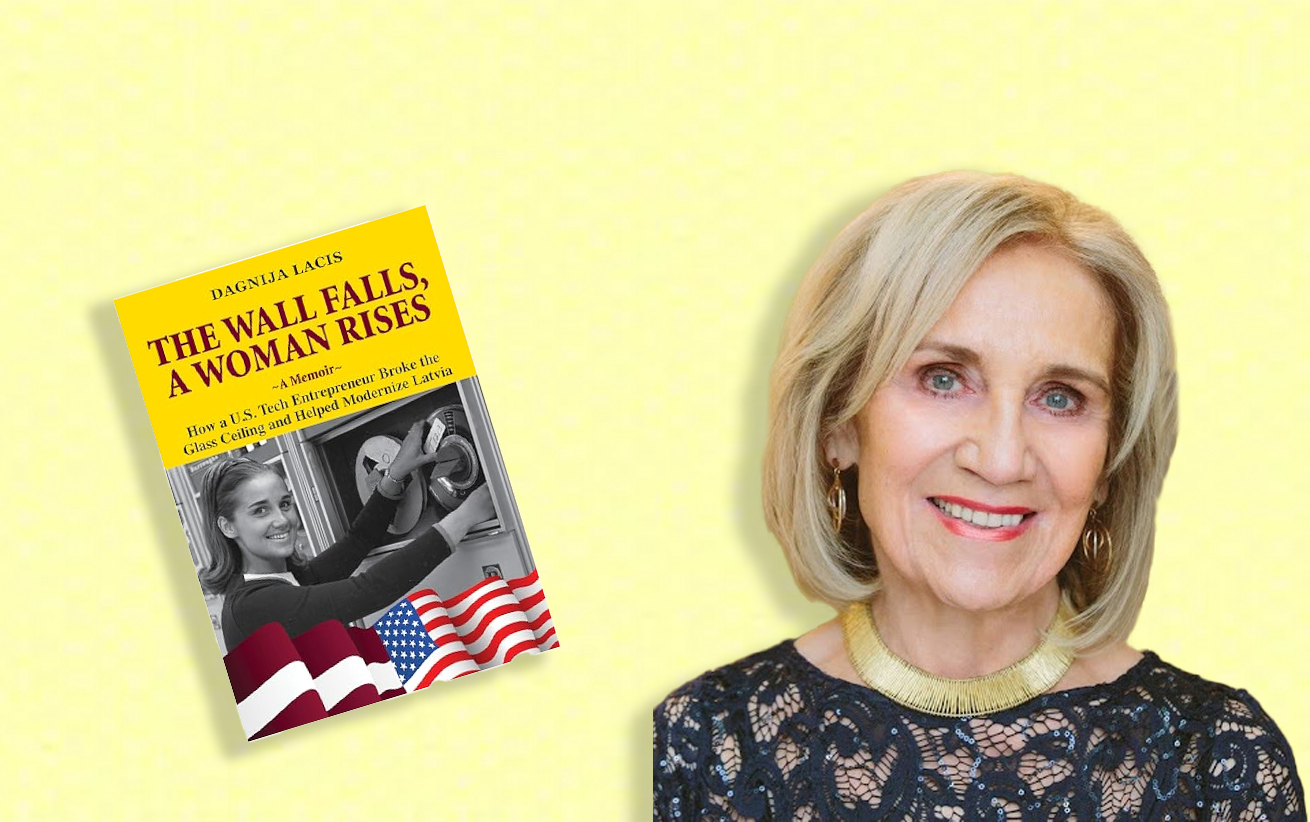Dagnija Lacis was the first female programmer at the IT company Burroughs Corp. Photo courtesy of Dagnija Lacis.
ELLA HALL | STAFF REPORTER | erhall@butler.edu
Dagnija Lacis has always turned her obstacles into fuel for success, never letting them define her. The Butler alum returned to campus on March 27 to participate in a Q&A session in celebration of her new memoir, “The Wall Falls, a Woman Rises”.
Lacis emigrated to the United States at just seven years old, fleeing a communist-occupied Latvia. She studied chemistry and mathematics at Butler University before breaking barriers by becoming the first woman programmer at Burroughs Corporation. After the fall of the Berlin Wall, Lacis returned to Latvia and used her technological expertise to help modernize the country.
Lacis sat down with The Butler Collegian to discuss how entering a male-dominated field and using her expertise to assist her home country have impacted her.
THE BUTLER COLLEGIAN: What made you choose to write a memoir?
DAGNIJA LACIS: The decision came when I started my work in Latvia after the wall fell; I had such interesting experiences. I kept a diary and saved all my emails and proposals that I wrote, so at that point, I had all this information. I said, ‘Well, I’ve got to document that.’ It was an effort over 10 years. I would do one chapter and forget about it for several months and then pick [it] up again. I just wanted to document my life.
TBC: How did attending Butler impact your journey?
DL: Butler gave me the training and the interest in mathematics, which I probably would not have had elsewhere. I had great math professors and I really enjoyed the work there. The professor whom I consulted about what profession I should go into suggested computing as one of the options, so Butler was very influential.
TBC: Was there anything specific that inspired you to start with mathematics as your field of interest?
DL: It was just that I like numbers. I don’t know where that came from, but I just love solving problems in mathematics. I just loved it. I loved all my courses in math.
TBC: What have you gained from paving the way for women in technology-related fields?
DL: I’ve always thought that whatever skills one has, if the job that they really want to do is [compatible], you should go for it, no matter if you’re a guy or a girl, your race or your religion. It doesn’t matter. It’s just the skills that one has. To me, everything is merit-based.
TBC: What lessons have you learned that would be important to share with current Butler students?
DL: I think the main message is really sticking to your goals, whatever you want to do. Stick with it, and there are many paths to achieving those goals. If you think this is the way you achieve it, get ready for obstacles. You just have to keep going. You have to find another path. I think that’s very important these days, because I see too many people jumping ship at the first obstacle, and one shouldn’t do that. I had obstacles hit everything I did, but no obstacle really stopped the goals I wanted to achieve. I took different paths quite often. I just kept going.



